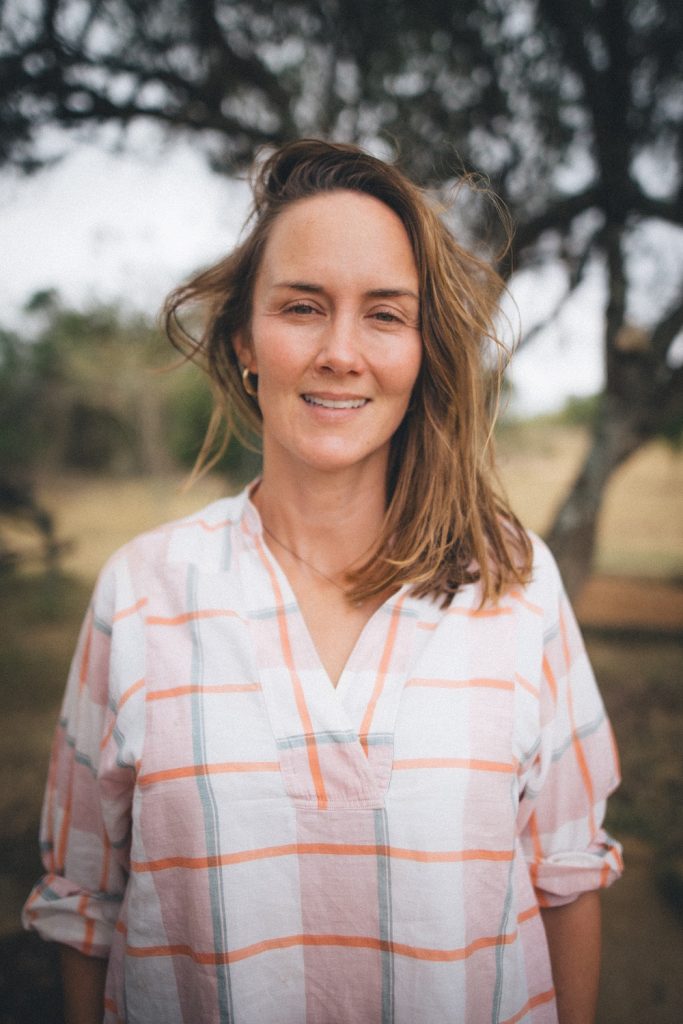This is the third in a series of Q&As we are publishing with our innovation challenge winners. From their experiences in the incubation and co-learning programme, they have gained unique insights into operationalising their ideas and approaches in the real world and overcoming challenges in the conservation sector. Each interview will capture their inspiring journeys towards disrupting the conservation status quo, shaking things up and making a difference in the conservation space for more regenerative and equitable futures.
If you missed the first two interviews, you can read them here and here.
In focus: Lauren Evans
Project title: Human Nature
Themes: Improving Communication | Rethinking Power
Lens: A world where conservation work is locally focused and locally led (proposition 7 in our report ‘Exploring possible futures for conservation NGOs’)
Pathway: Empowering local community actors
Through her transformative work with Human Nature, Lauren Evans is spearheading a conservation revolution. She shares her approach, utilising context-specific social science and conflict resolution techniques to empower conservationists with the essential tools for effective communication, collaboration and meaningful engagement with diverse perspectives.
After my PhD and postdoctoral political ecology research into the post-colonial history of conservation in Kenya, I worked in conservation practice. I became increasingly disillusioned with the protectionist and often exclusionary practices I came across. I was struck by many people’s inability to hear and understand each other and by how their viewpoints and positions became polarised. Powerful voices overwhelmed those who felt ignored by the status quo. This made me think about how many conservationists are not equipped with the skills to address these challenges. Conservation tends to be taught throughout the world as a natural science and not a social science. Yet conservation is ultimately a human endeavour. At its core, it is about managing conflict between people. However many conservationists lack the skills to deal with conflict. With Human Nature, my aim is to challenge this status quo and create a more connected conservation practice that is shaped by humanity and heart.

I want to see a sector that understands and embraces the nuances, diversity and complexity of humanity. A sector that recognises and addresses that people’s needs – such as for peace and to be understood – are universal. A sector that is inclusive – one where traditionally more dominant voices can truly listen to and engage with marginalised ones and where marginalised voices have more power and space.
To achieve this vision, Human Nature will actively integrate social science, conflict transformation and non-violent communication into conservation policy, research and practice.
I will achieve this by working with conservation organisations to understand social contexts and resolve conflicts. I will also train conservationists within conservation organisations and on conservation courses at universities in Africa and the UK in social science, conflict resolution and effective non-violent communication. The project aims to cultivate a cohort of conservationists who can adeptly engage with people, mediate conflicts, and facilitate genuine collaboration, equipped with the skills and knowledge required to navigate these intricate social landscapes.
The traditional conservation paradigm has been rooted in protective, top-down measures that do not necessarily hold the social aspects of conservation work at the centre. I have found there is a willingness for change but perhaps a discomfort in embracing more unusual, radical approaches, such as non-violent communication. But people are beginning to trust and value such approaches having seen the transformation in communication that can be achieved in practice.
Human Nature was a seed of an idea when I applied. It is now up and running and beginning to create change and this is thanks to the incubation programme. I felt supported and heard and held throughout. I was unafraid to test out ideas and have them critically thought through and fed back on by others.
I became part of a wider network of conservationists with shared values, who all want to learn from and collaborate with each other to achieve greater impact. I found this empowering and positive.
That empathic leadership is more powerful and impactful than authoritarian leadership.
That I like planning on Miro boards!
I am now actively engaged in building a robust brand and developing a comprehensive website to enhance the outreach and impact of Human Nature. I am currently contributing to the establishment of socially inclusive, empowering and decentralised conservation policies in Kenya, particularly on how community conservancies can navigate the complexities and opportunities (and risks) of the carbon sector. I am steadfastly progressing towards the implementation and dissemination of more radical practices in conflict transformation and non-violent communication.
To find more about Human Nature please visit:
https://www.linkedin.com/in/lauren-evans-66538755/?originalSubdomain=ke
Approach: Integrating social science, conflict transformation and non-violent communication into conservation practice, learning and policy
Model: Helping conservation organisations resolve conflicts, communicate better and understand societies through consultancy, capacity-building, tools and resources
Leadership: Empathic, connected and collaborative. Listening to and including people’s needs in conservation practice.
The content of this interview represents the authors' own views and does not necessarily represent the views of Unearthodox or the Future of Conservation NGOs project.